Editor’s note: This summer, we’re bringing you articles from around the United States, highlighting different photographic locations for you to check out. Whether your own backyard or worthy of a road trip, we hope you’ll get inspired! Here’s a preview by Bob Coates on Arizona. Look for our series, Photofocus Road Trip, launching June 1, 2021.
In Arizona drive an hour in any direction. Do it again. And again. Not only will you find beautiful locations to photograph you will see entirely different ecosystems.
Here I take a look at a few wonderful locations that are within an hours drive of each other but are worlds apart in Northern Arizona, starting with Sedona. Stay tuned for parts two and three to explore Flagstaff, Page and the Grand Canyon. The image above is at the entrance to the Village of Oak Creek on our designated Scenic Highway.
North Central Arizona
Sedona is a spectacular location with the town built into the red rocks. There are lots of red rock areas in the southwest but no other towns, to my knowledge, that are nestled into the nooks and crannies of the beauty. The benefit to you as a traveler? Staying in Sedona puts your photographic landscapes with a quick hop, skip or jump.
At a little over 4000 feet this is high-desert. Altitude and dry air can can lead to dehydration. Make sure you drink more water than you think you should to stay healthy during your time here especially if you head out on the trails.
Cathedral Rock
One of the top 10 US most photographed formations, is a midday to sunset location. If you go in the morning the red rocks will be underexposed, leaving their beauty right where it is instead of in your camera. If the white puffy clouds are working the contrast of them with the clear blue skies can be amazing in full sun.
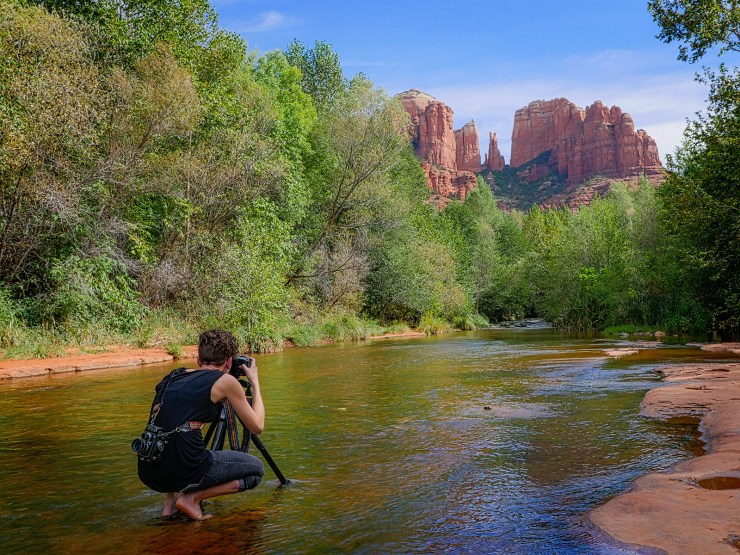
The best sunset photos are actually about 10–15 minutes after the sun has gone below the horizon allowing the contrast to soften. I often watch people leave the scene right after sunset and lament their loss of the true photo beauty waiting to be captured.
Highway 179
Highway 179 is the gateway to red rock country leading into Sedona from I-17 and passing through the Village of Oak Creek. You’ll find four or five trailhead areas to park and begin your hiking adventure for more photo opportunities.
Sedona is a hikers paradise. Well maintained trails leading to all sorts of adventures with different views at every turn. With over 200 trails covering 400 miles, you could spend a long time hiking and not have seen all there is to see.
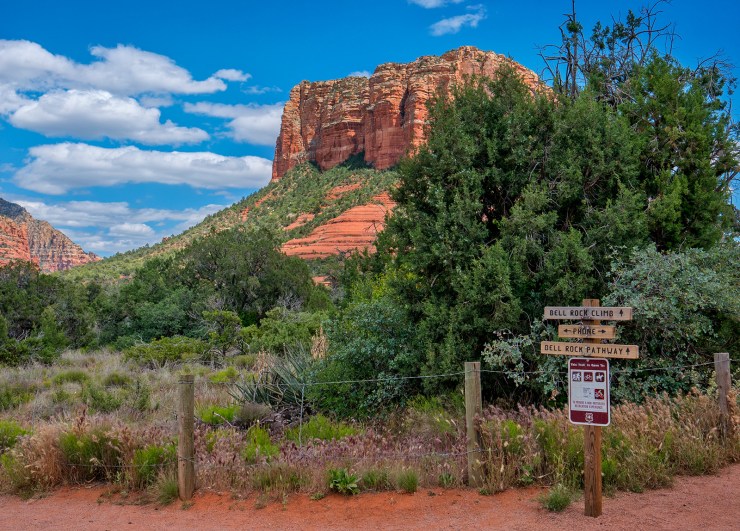

My two favorite trailheads are the Bell Rock Vista and Little horse Trailhead. Both of these locations work for all day image creation. As the road runs north/south nice light is available for sunrise and sunset.
Dry Creek Road
This road leads into the northern areas along with more trailheads and different formations views. It’s probably one of the most popular off of Dry Creek Road is Devils Bridge. Dry Creek Road leads to a warren of red rock views and more trails to wander.
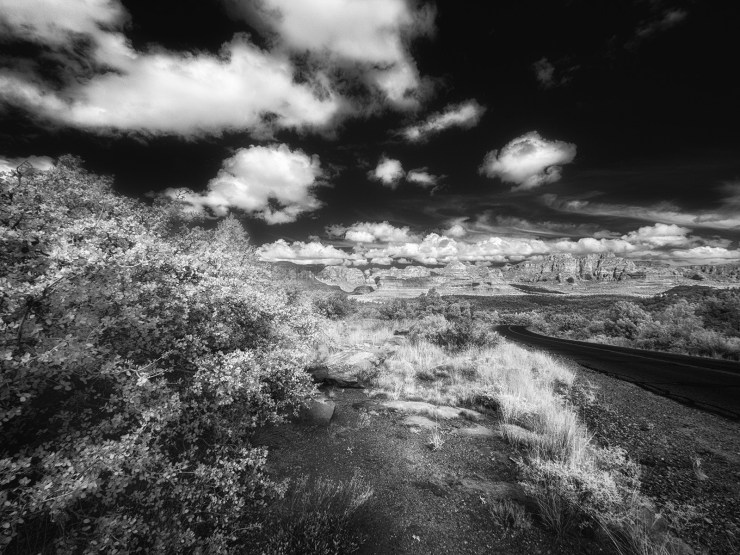
Wetlands
It’s hard to believe but Sedona has a wetlands area with six ponds, created to allow the wastewater to perk and revive the environment after treatment.
Almost any time of year you’ll find different wildlife. Some avian life are residents, others pausing for a stop on their migratory path. Birds, dragonflies and flowers are standing by for your camera treatment.
If wildlife is really your thing, just down the road — you’ll also find a super avian population at Bubbling Ponds Fish Hatchery on Page Springs road in Cornville. A year-round population of Great Blue Herons is my favorite target there.
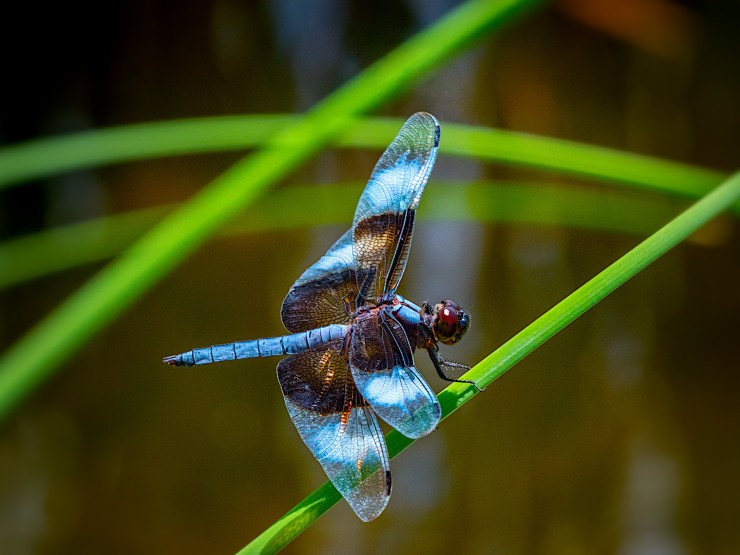
Times to visit
Best weather times are spring and fall. That is also the highest number of people and the resulting traffic that can slow your progress while heading to your location. At the very least I recommend you schedule your visit on the shoulder or off-season. As Sedona is getting ever more popular as a destination mid-week tends to be less crowded.
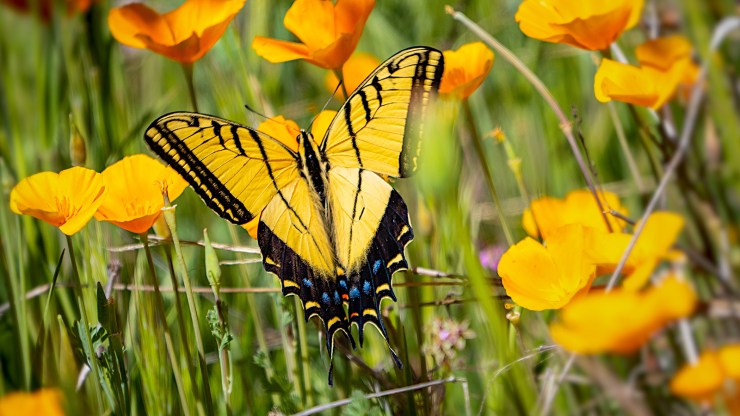
One request
As you pursue your travels, please take care of your trash. Pack it in? Pack it out. Leave no trace other than footprints. If everyone adopts that mantra our lands will stay beautiful for all.
Yours in Creative Photography, Bob
Tell your story with the second annual Visual Storytelling Conference!
Experience four days of interactive, online training sessions featuring a range of educational content with experienced photographers and content creators. This free event kicks off with a series of technical boot camps to build essential skills, followed by live, online sessions on photography, video, business and social media. Join live from March 10-13, 2022!
